Destination Wedding Tips: Your Ultimate Guide to a Perfect Celebration
Planning a destination wedding can be an exciting adventure. It’s a chance to combine your special day with travel to a beautiful location, making it memorable for you and your guests. You might wonder how to make everything go smoothly and create a perfect celebration away from home.
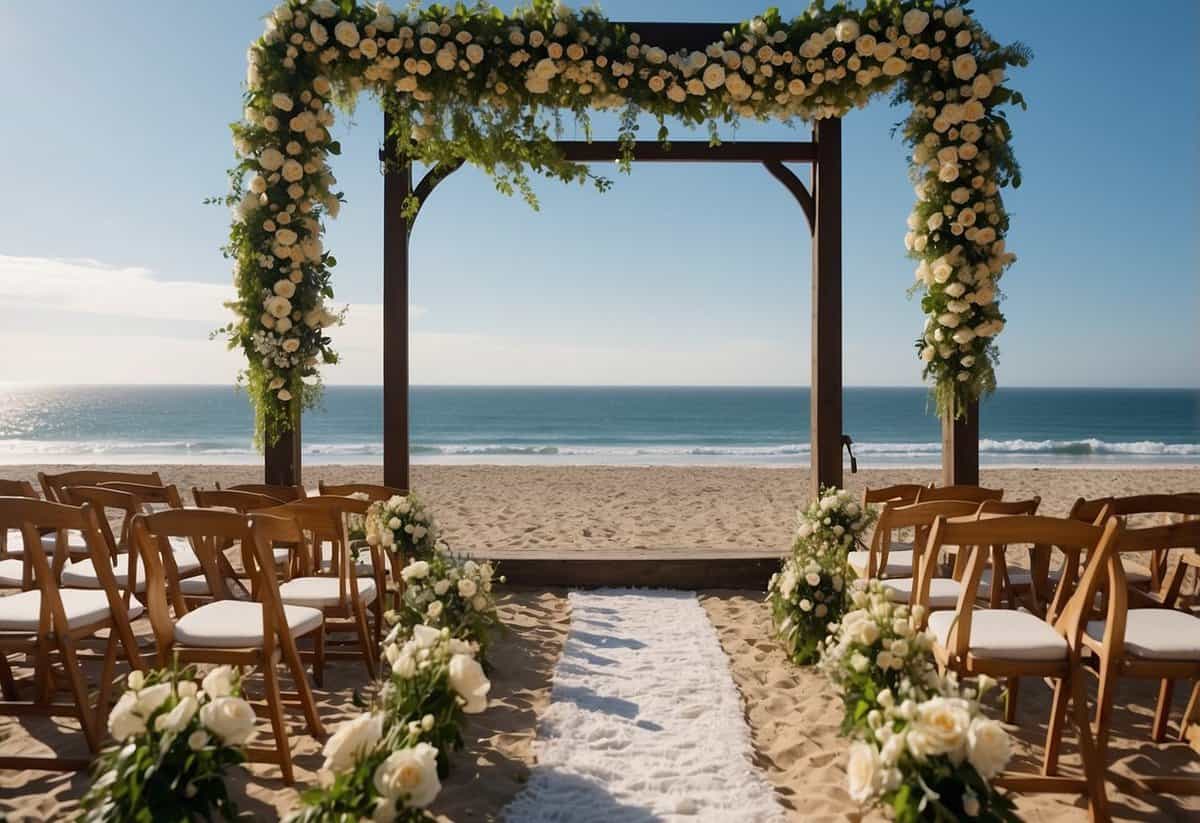
In this article, you’ll find useful tips to help you navigate the unique challenges and opportunities that come with planning a destination wedding. From picking the perfect spot to handling logistics, there’s a lot to consider.
1) Choose a Scenic Venue
Your wedding venue sets the tone for your special day. Selecting a location with stunning scenery can make your wedding unforgettable. Places with natural beauty like beaches, mountains, or charming gardens are popular choices.
Think about what backdrop would best fit your style. Do you love the ocean? Consider a beach venue. Is the serene beauty of mountains more your vibe? There are many beautiful options.
A scenic venue doesn’t just look good in photos—it creates a memorable experience for you and your guests. Look for places that offer unique views and a sense of adventure.
2) Seasonal Flowers for Decor

Choosing seasonal flowers can add a special touch to your destination wedding decor.
In spring, daffodils and lily of the valley are lovely options. They bring fresh and vibrant colors to your arrangements.
Summer weddings can feature peonies, roses, and bougainvillea. These flowers offer rich, warm tones that pop in the sunshine.
For a fall wedding, consider using marigolds, chrysanthemums, and dahlias. They add a cozy, autumn feel with their deep reds and yellows.
Winter weddings shine with evergreens, poinsettias, and holly. These choices provide a festive and elegant look.
Using local and seasonal flowers not only enhances your decor but can also save money and support the local economy.
3) Customized Wedding Invitations
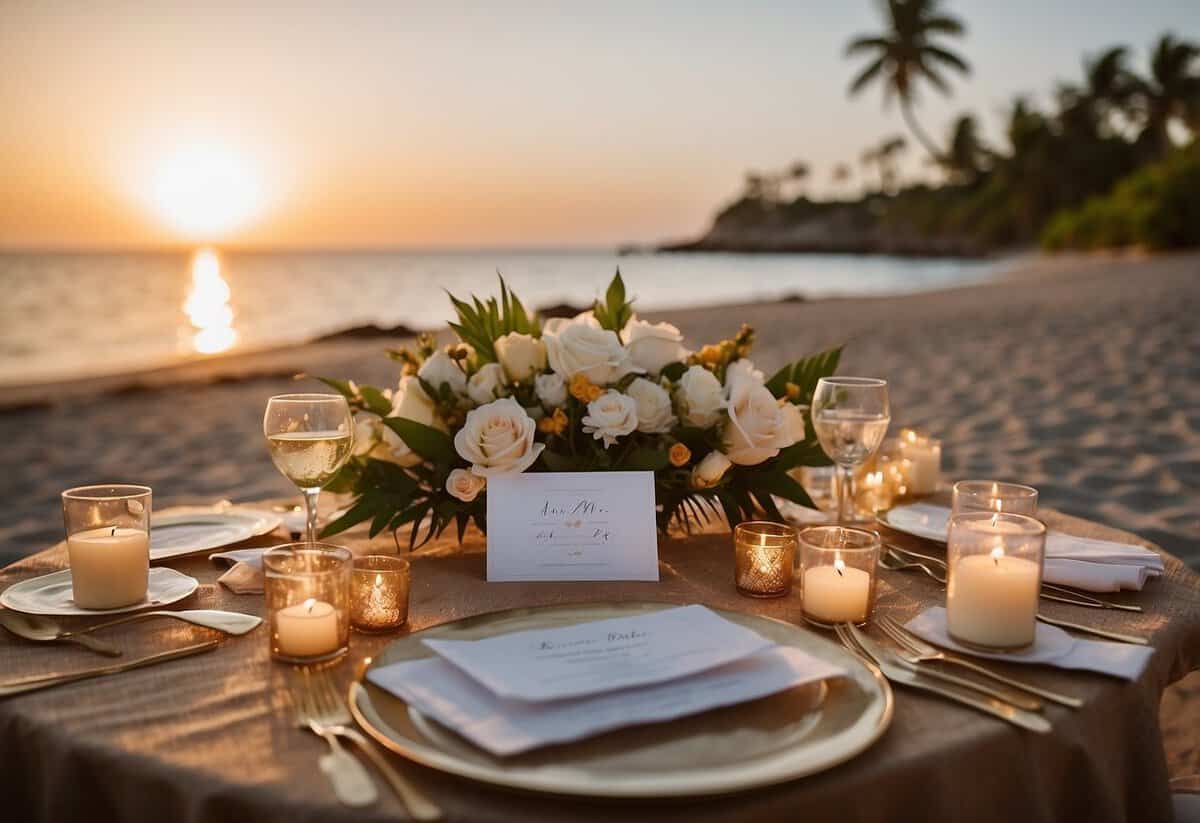
Customized wedding invitations set the tone for your big day. They give your guests a sneak peek into the theme and feel of your destination wedding.
Personalized touches can make each invite feel special. You can add elements like the wedding location’s colors, local symbols, or even pictures of the destination to create excitement for your guests.
Choose wording that reflects your unique style and the vibe of the event. Don’t hesitate to share the story behind your chosen destination to make the invites even more personal.
Including travel details is essential. Make sure your invitations provide important information like dates, accommodation options, and travel tips. This helps your guests plan and enjoy the experience without stress.
Special features like laser-cut designs or floral themes can enhance the beauty of your invitations. Opt for high-quality materials to ensure your invites look and feel exceptional.
4) Local Cuisine Delights
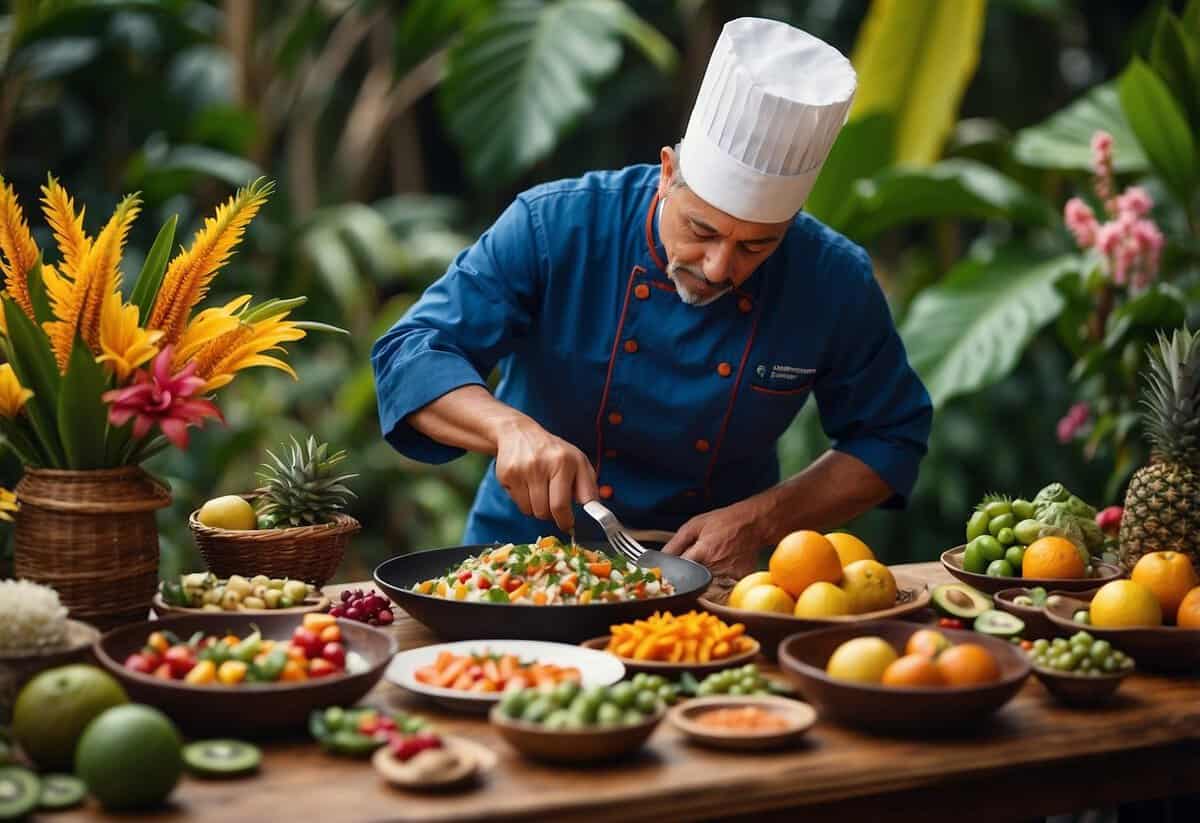
Incorporating local cuisine into your destination wedding menu adds a memorable touch. It lets your guests experience the unique flavors of the region. Think about including traditional dishes that highlight the culture and history of your destination.
If you’re in Greece, consider serving dishes like moussaka or baklava. In Italy, you might feature pasta and locally produced cheeses. Each dish tells a story and connects you and your guests to the location.
Ask your wedding planner or caterer for recommendations. They often have great ideas and know the best local specialties. Including regional ingredients can also make your menu feel fresh and unique. Your guests will appreciate the thought you put into bringing the local culture to your celebration.
Remember, the food at your wedding can be more than just a meal. It’s a way to create lasting memories and share a new experience with your loved ones.
5) Hire a Wedding Coordinator

Hiring a wedding coordinator can save you a lot of stress. These professionals are experts in managing details that can overwhelm you.
They have contacts with local vendors, which can help you get the best deals.
Wedding coordinators also handle last-minute issues, so you can enjoy your special day without worry.
Your coordinator will work to make your wedding day run smoothly.
6) Plan a Group Excursion

Plan a fun group activity to make your destination wedding even more memorable. Excursions give your guests a chance to bond and enjoy the location together.
Consider options like a sunset catamaran trip. This can be a relaxing way to soak in the views and say goodbye after the wedding.
You could also plan a guided tour of local attractions. It helps guests learn more about the place and keeps everyone entertained.
Another idea is organizing a beach day with games and a picnic. This casual outing lets everyone unwind and connect without a lot of fuss.
Make sure to inform your guests about the plan in advance. This way, they can prepare and join in the fun.
Including a group excursion in your wedding plans can create lasting memories for everyone.
7) Weather Contingency Plans
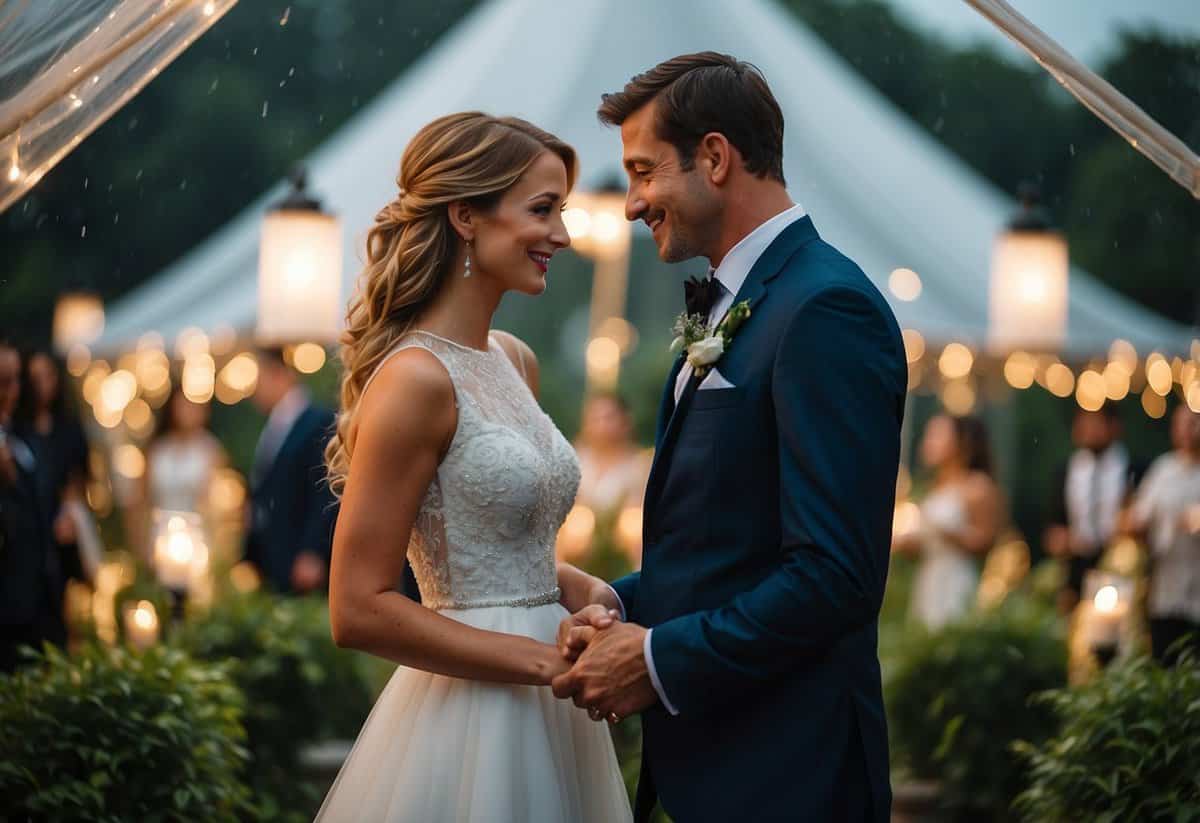
Planning for unexpected weather is crucial for a destination wedding. Even if you think the date will have perfect weather, surprises can happen.
Talk to your wedding planner about what to do if it rains or gets windy. Consider renting a tent for outdoor ceremonies and receptions.
Select a venue with both indoor and outdoor options. This way, you can move indoors if the weather turns bad.
It’s also smart to send save-the-dates early. This lets your guests prepare for any weather conditions they might face.
Be ready for other weather changes too, like heat waves or chilly evenings. Ask your planner for advice on how to keep everyone comfortable.
8) Offer Welcome Bags
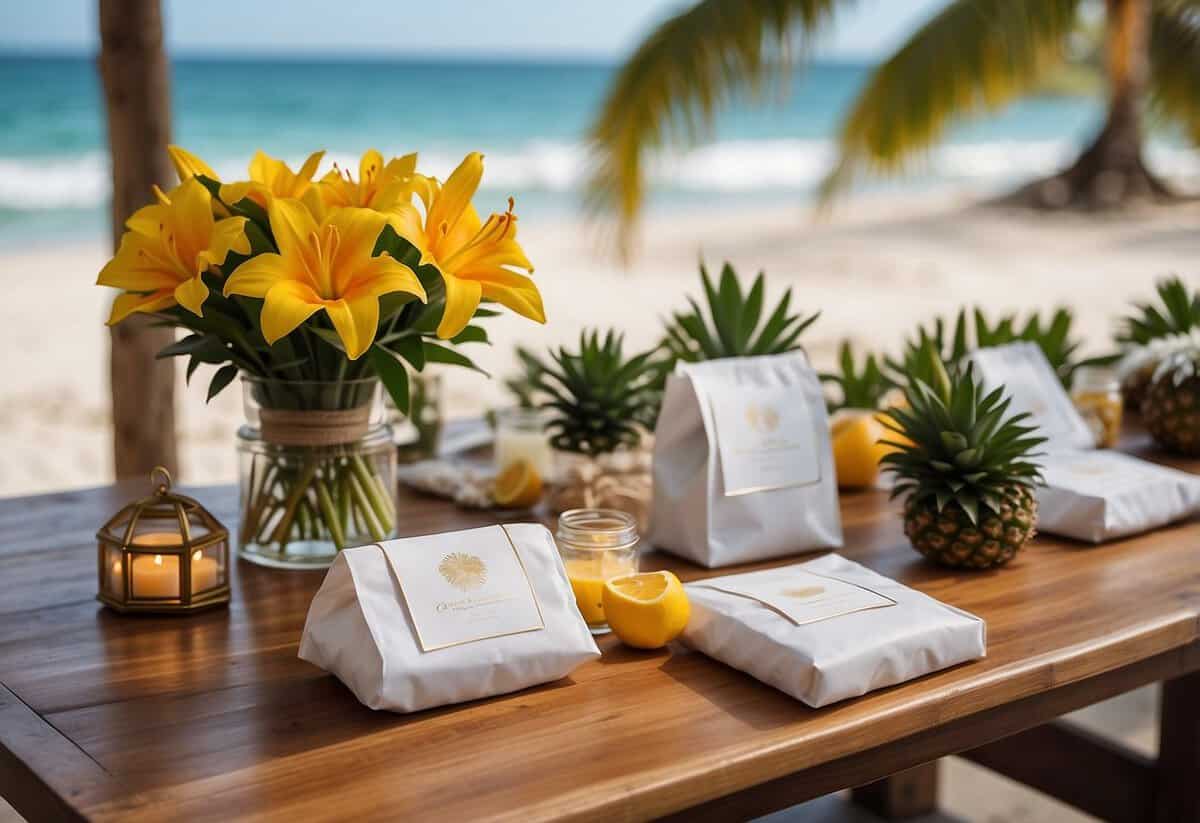
Welcome bags are a thoughtful way to greet your guests and make them feel appreciated. They also help set the tone for your destination wedding.
Include items like water bottles, snacks, and sunscreen. These essentials will be useful, especially if your guests are staying in a hotel. Personal touches, like a welcome note or a map of the area, can add a special touch.
Consider adding local treats or souvenirs that reflect the destination. This way, your guests can experience a bit of the local culture.
Keep in mind that the cost of welcome bags can vary. You can customize the contents based on your budget, ranging from simple to elaborate. Just remember to have fun with it and make it personal!
9) Book Group Accommodation

Booking group accommodation helps keep everyone together. Staying in the same hotel or resort can make it easier to coordinate events and spend quality time with loved ones.
When booking, look for hotels that offer group discounts. Some places have special packages for weddings, including perks like free room upgrades or breakfast.
Consider using a travel advisor. They can help secure the best deals and handle logistics like transportation from the airport.
Remember to book early. Popular wedding destinations fill up fast, so reserve your rooms as soon as possible to ensure everyone has a place to stay.
10) Create a Wedding Website

A wedding website is a great way to share important details with your guests. It keeps everything organized and easy to find.
Include travel information like the nearest airports, train stations, and driving directions. Make sure to add lodging options too. Provide hotel recommendations, Airbnb options, and discount codes.
Your website should also list the event schedule, dress code, and any pre-wedding activities. Share your love story and engagement photos to make it more personal. Don’t forget to add a section for RSVPs to keep track of who’s attending.
Adding links to your gift registry can help guests find the perfect present. Use platforms like Joy, The Knot, or Zola to create a user-friendly site.
Finally, include local attractions and restaurants for guests who want to explore the area. This will make their experience even more enjoyable.
Planning Your Destination Wedding
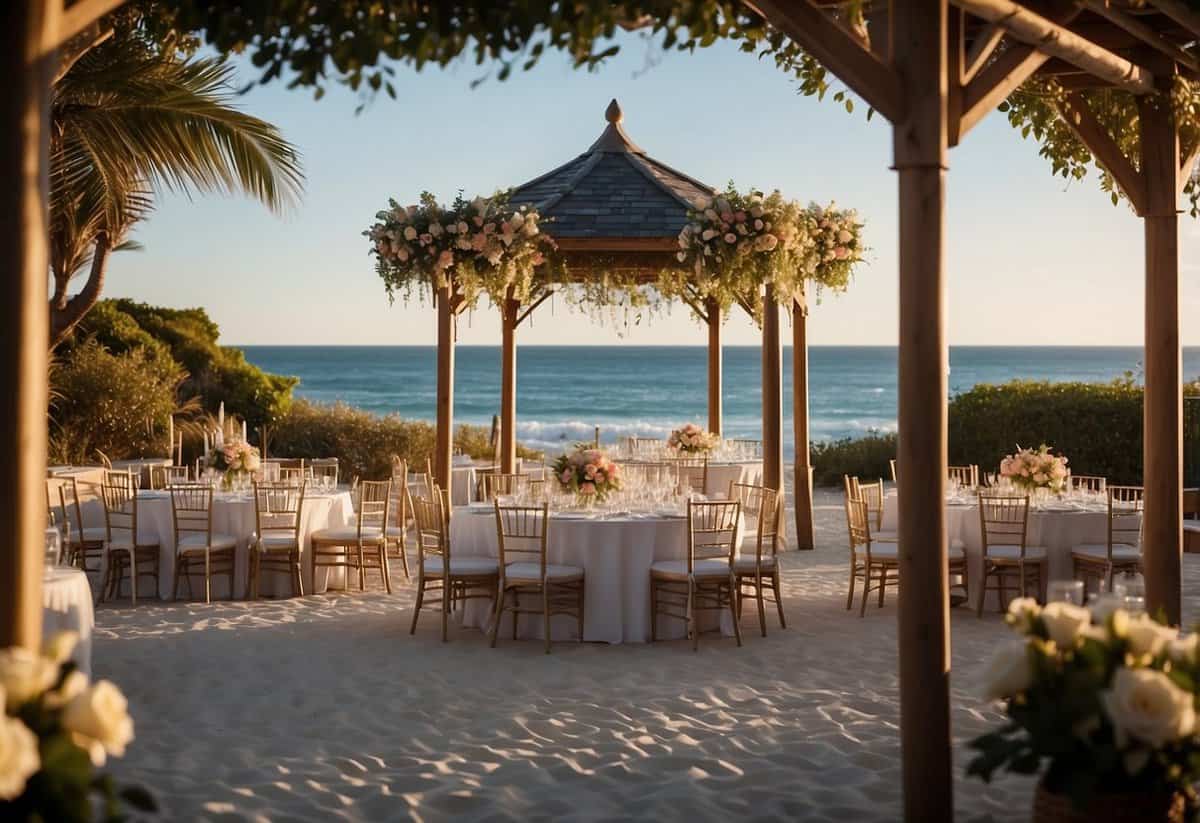
When planning your destination wedding, it’s important to pick the right location, create a budget, and understand the legal aspects. These steps will help ensure that your special day goes smoothly and is enjoyable.
Choosing the Perfect Location
The location of your wedding sets the tone for your entire event. Think about what scenery and vibe you want. Consider distance, travel costs, and convenience for guests. Popular spots include beaches, mountains, and vibrant cities.
Research weather patterns for your chosen dates. Some places might be beautiful but also have rainy seasons. Check if there are seasonal events or holidays that could affect availability and prices.
Keep in mind guest accommodations. Make sure there are enough hotels nearby, and consider transportation options. A beautiful location is important, but your guests’ comfort matters too.
Setting a Realistic Budget
Start by determining how much you can spend overall. Factor in flights, lodging, and activities for both you and your guests. Destination weddings can be more affordable if you plan carefully.
Create a detailed budget spreadsheet. Include costs for venue, food, decor, photography, and extra fees like exchange rates or import taxes. Some resorts offer packages that might save money, but be sure you understand what’s included.
Remember to allocate funds for unexpected expenses. Prices can change quickly, especially with conversion rates and travel. Stick to your budget to avoid stress and financial strain.
Navigating Legal Requirements
Each destination has unique legal requirements for weddings. Research the necessary documents and deadlines. Common documents include passports, birth certificates, and proof of divorce or widowhood if applicable.
Some countries require you to be in the country for a specific amount of time before the wedding. Find out if you need blood tests or other medical exams.
Consult with local authorities or a wedding planner who knows local laws. They can help ensure everything is legally binding and valid once you return home. Prioritize this step early to prevent last-minute issues.
Managing Guest Logistics
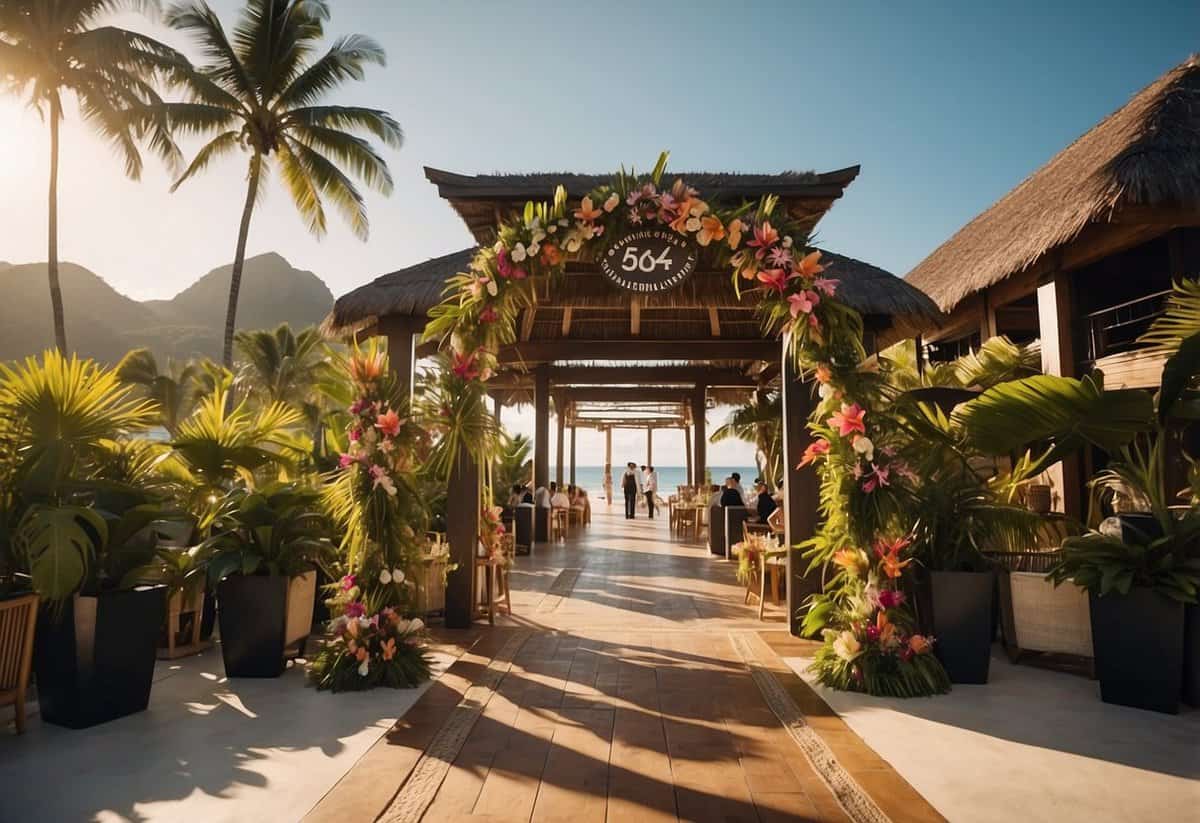
When planning a destination wedding, it’s important to manage guest logistics effectively to create a seamless and enjoyable experience for everyone. Focus on clear communication and thorough travel and accommodation arrangements to ensure your guests enjoy their time.
Communicating with Guests
Effective communication is key to managing your guests. Send invitations 10-14 weeks before the wedding. This gives your guests enough time to make travel plans. You should move up the RSVP date to 6-7 weeks before the wedding. This helps in planning the logistics.
Create a detailed wedding website. Include crucial information like travel details, dress codes, and the event schedule. Keep your guests updated through emails or social media. This way, they will have the latest information immediately. Clear and consistent communication makes the experience smooth for everyone.
Travel and Accommodation Arrangements
Arrange travel and accommodation options for your guests. Provide them with a list of nearby hotels that offer group rates. This can help them save money. It’s also helpful to share information about local transportation, like car rentals or shuttle services.
Consider creating welcome bags for your guests filled with local maps, schedules, and small gifts. This personal touch can make their visit more enjoyable. Be sure to inform your guests about the weather and any cultural nuances they should be aware of. Making these arrangements ahead of time allows your guests to relax and fully enjoy your special day.








